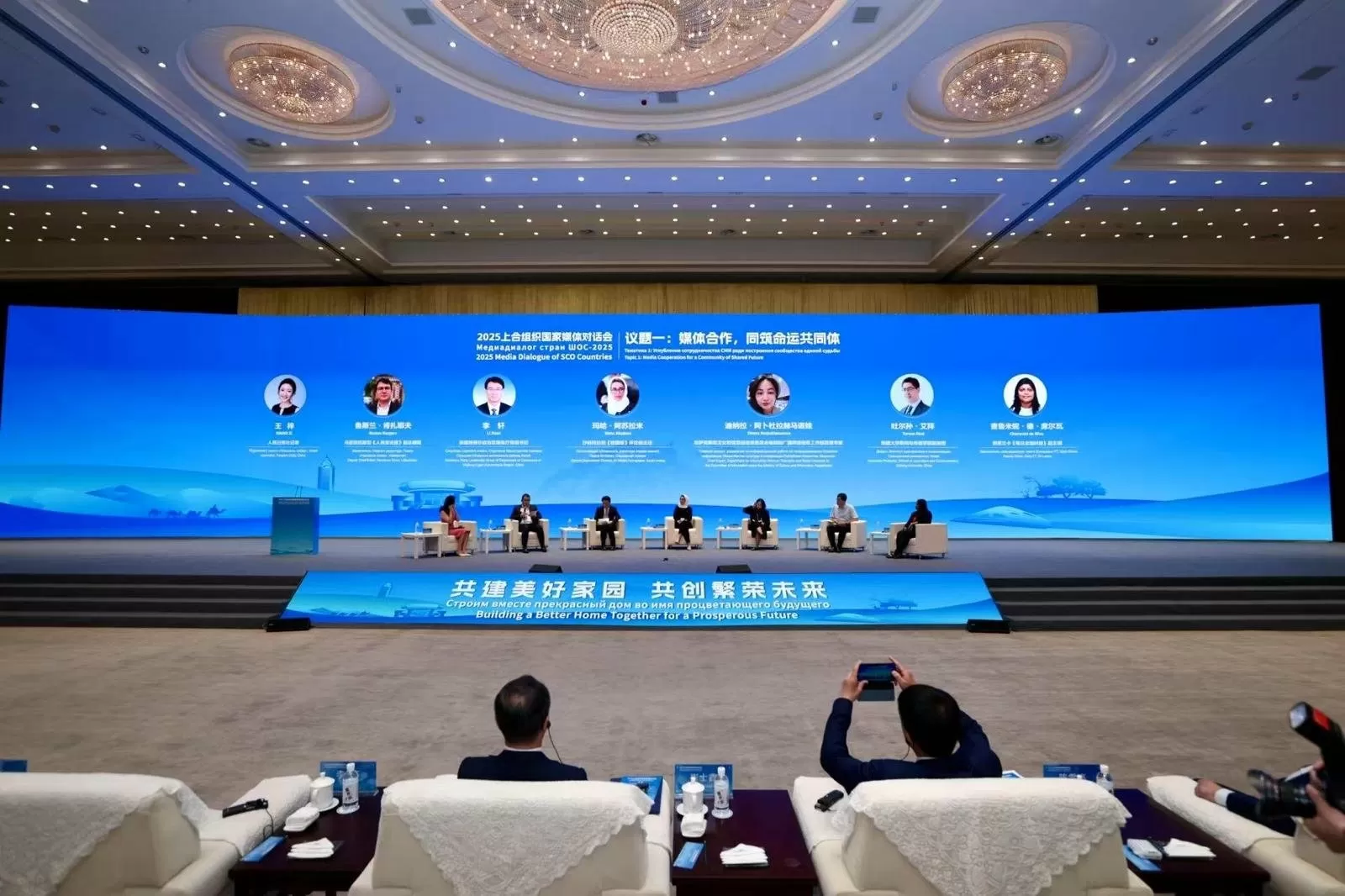Media representatives from Shanghai Cooperation Organization (SCO) member countries, observer states and dialogue partners recently gathered in the northwestern Chinese region of Xinjiang Uyghur Autonomous Region for a three-day media forum. The forum, which was held from October 11th to 13th, aimed to promote cooperation and understanding among media organizations within the SCO.
The forum was attended by representatives from all eight SCO member countries, including China, Russia, Kazakhstan, Kyrgyzstan, Tajikistan, Uzbekistan, India and Pakistan. In addition, representatives from observer states such as Afghanistan, Belarus, Iran and Mongolia, as well as dialogue partners including Azerbaijan, Armenia, Cambodia, Nepal, Sri Lanka and Turkey, were also present.
The forum was jointly organized by the State Council Information Office of China and the People’s Government of Xinjiang Uyghur Autonomous Region. It was held in the city of Urumqi, the capital of Xinjiang, which is known for its rich cultural diversity and historical significance as a key stop on the ancient Silk Road.
During the opening ceremony, Mr. Guo Weimin, Vice Minister of the State Council Information Office of China, highlighted the importance of the forum in promoting mutual understanding and cooperation among media organizations within the SCO. He also emphasized the role of media in shaping public opinion and building bridges between different cultures and nations.
The forum featured a series of panel discussions, workshops and cultural activities, providing a platform for media representatives to exchange ideas and share best practices. The topics discussed included the role of media in promoting regional cooperation, the challenges and opportunities of digital media, and the importance of cultural exchanges in strengthening ties between SCO member countries.
One of the key highlights of the forum was the signing of a Memorandum of Understanding (MoU) between the SCO media organizations. The MoU aims to enhance cooperation and exchanges among media organizations within the SCO, and to promote the sharing of news and information among member countries.
In addition, a joint declaration was issued at the end of the forum, reaffirming the commitment of all participating media organizations to promote cooperation and understanding among SCO member countries. The declaration also emphasized the role of media in promoting peace, stability and development in the region.
The forum also provided an opportunity for media representatives to explore the rich culture and history of Xinjiang. Participants were treated to a cultural performance showcasing the diverse ethnic groups and traditions of the region. They also had the chance to visit historical sites such as the ancient city of Kashgar and the Karez irrigation system, which has been recognized as a UNESCO World Heritage Site.
The forum received positive feedback from all participants, who praised the warm hospitality and well-organized event. They also expressed their appreciation for the opportunity to learn about the culture and development of Xinjiang, which is often portrayed negatively in Western media.
The successful hosting of the media forum in Xinjiang is a testament to the region’s stability and development. Xinjiang has made significant progress in economic and social development in recent years, with a focus on poverty alleviation, infrastructure development and cultural preservation.
The forum also highlighted the importance of the SCO as a platform for promoting regional cooperation and understanding. With the expansion of the SCO in recent years, it has become an influential organization in promoting peace, stability and development in the region.
In conclusion, the SCO media forum in Xinjiang was a successful and fruitful event, promoting cooperation and understanding among media organizations within the SCO. It also showcased the rich culture and development of Xinjiang, and highlighted the important role of media in promoting regional cooperation and understanding. The forum has further strengthened the ties between SCO member countries and paved the way for future collaborations.





![Complete BritRail Pass Guide [Types, How to Use It, Pros + Cons]](https://inside-news.uk/wp-content/uploads/2025/06/00221EB4-BCA2-4DBB-6CD4-83DBC37D71FA-120x86.webp)
















